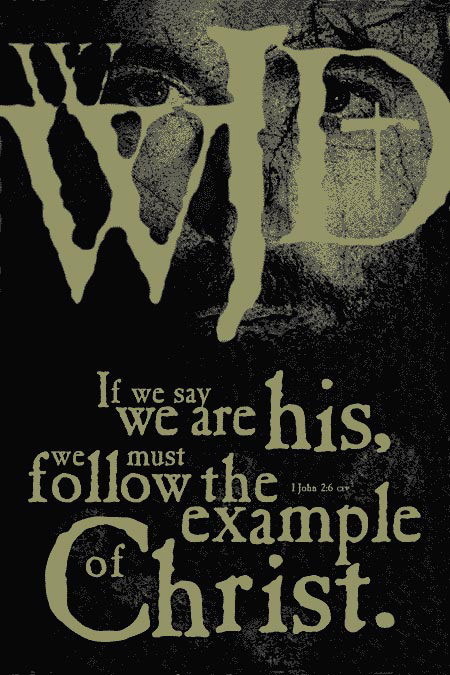
The first I want to cover is a growing trend of people writing books that invent a Christian undertone in popular works of literature. One example is Harry Potter. I'll leave the debate about whether Christians should or should not read the series for another time. However, what we can look to is that the books were not written with Christian themes or elements in mind. However, several books have come out that try to say just that. Head on over to Amazon.com and search for "Finding God in Harry Potter" (or click here and I'll do it for you). The very first result is a book entitled "Looking for God in Harry Potter" by John Granger (hey, that is pretty similar to what I said to search for!). From the books own description the author "contends that Rowling is writing in the tradition of Tolkien and C. S. Lewis. Are they just a good read, or do they nourish the soul as well?"

I think it's very important at this point to say that yes, I have indeed read and thoroughly enjoyed the Harry Potter series. I have also read Tolkien's works and some of C.S. Lewis and I can tell you that yes, the Harry Potter series is written similarly, but not in the sense the author is saying. Both Tolkien and Lewis were professed Christians when they wrote their masterpieces (The Lord of the Rings saga and The Chronicles of Narnia series, respectively). J.K. Rowling has made no such claim and some aspects of her life point to her not being a Christian (that doesn't give Christians an occasion to judge, but since only God knows the heart, I'm working with what I've got). Also, the thematic elements in Tolkien and Lewis are the central emphasis of the books, whereas in the Harry Potter series, they are more to push the story along and have you rooting for the right side (we all love a good underdog story, don't we?).
Another series that pushes this ideal of over-emphasizing Christian themes to justify reading secular material is the "The Gospel According To" series. What they have done is gone through secular life and grabbed popular materials to "Christianize". They cover everything from Disney to Dr. Seuss to The Simpsons. While these books do indeed point out the good aspects of these various works, whether they be TV, movies, or books, they are often used as a way for Christians to justify reading/watching/partaking. Reading Dr. Seuss is not a bad thing in and of itself, but most of the books are pretty empty of real content or values. Dr. Seuss is a great example of something that is neither good or bad, just kind of there. What books like "The Gospel According to Dr. Seuss" try to do is make an arguement that the books are indeed Christian by making weak arguments and real stretches to connect the dots. Again, Dr. Seuss isn't bad, but don't try to make his works into a great theological work.

One more example I'd like to cover is the realm of music. I personally listen to sports talk radio and Air1 (http://www.air1.com/). Air1 plays both Christian music and clean secular music. It's important to make the distinction that there are indeed two different types of music being played. What some Christians do is listen to a station like Air1 and hear music by "Lifehouse" and "The Fray" and tweak the meaning of the songs to make them reflect Christianity. This happens most often to love songs. Christians like to take that love song and tweak it to be talking about Jesus or God instead of the person the song writer intended. It's important to say right here that there are indeed wonderful love songs written to both our God and our Savior, but in order to justify and "Christianize" other artists, we change the meaning of ANY love song to be about our relationship with Jesus. Love songs referencing a godly love between a man and a woman are perfectly fine (you may have heard of this little book called "Song of Solomon" or "Song of Songs", depending on your translation). Love songs to our God and Savior for all the wonderful things they have done for us are great too (you may have heard of the book of "Psalms" too). However, it's important to remember that not all love songs were meant to apply both ways.
When it comes to Christianization, what we need to ask ourselves is if we really need a book to point out Christian themes and elements, should we really be involved in the first place? Like I said, I have read the Harry Potter books and I enjoyed them, but I don't pretend that they strengthened my relationship with Christ. So the real question is, if it doesn't strengthen my walk with the Lord, then what DOES it do?

The Bible tells us to not be "conformed to this world" (Romans 12:2). I'm not supposed to try to fit in with the world around me. I'm supposed to stick out like a sore thumb. The calling of Christ pushes me to transformation. Instead of looking like everyone else, I'm supposed to look more like Christ. It's become a cliche over the past 10 years or so, but I'm really supposed to ask myself, "what would Jesus do?" Would Jesus read Harry Potter? Would Jesus watch The Simpsons? Would Jesus listen to "Lifehouse"? If Jesus is the true standard of my life, then everything I allow in is supposed to please Him. What Christianization does is makes us conformers. It trys to make us look just like everyone else. We are supposed to be the light of the world (Matthew 5:14-16). We're supposed to shine the light of Jesus and direct all people to Him. If we look and act just like everyone else, no one will ever notice us, and we won't be pointing the way to Christ.





Wow, that was very interesting & thought provoking. Thanks!
ReplyDeleteGood commentary. Although I constantly scratch my head on how most people I know can group Potter with the other two works presented (except that they are all considered 'fantasy'). In fact, I probably would drop the other two in their own separate categories as well. Tolkien's work was strict fantasy written from a person with a Christian perspective, while Lewis's work, while a supposal (not an allegory as many assume) has definite doctrinal directives imposed upon the reader (great for kids!). In fact, Lewis's sci-fi trilogy (particularly 'That Hideous Strength') was the book which hit me over the head with Christianity as an though-centric belief, as opposed to an action-based religion, which is why religions are what they are (e.g. Catholicism). I cut a deal with a friend to read the first Potter book if she read a book of my choosing, and I found it devoid of any substance, and reminded me too much of the pre-teen books pushed on us by Scholastic, Inc. back in the day. Then when my wife and I watched the movie, we both fell asleep. Never went back, yet I re-read Lewis annually because I glean a different doctrinal viewpoint each time (I still struggle with the 'Tashlan Conundrum' as I call it). But I digress... As an avid fantasy reader, I could never see Potter in any serious fantasy library, and maybe if it had some allegorical value (Biblical or not), then it might merit some respect in the fantasy community, but as you said, many themes in the book are just there to push the story along. Or maybe it just needs to move out of the school :)
ReplyDelete/endrant
And I didn't miss the point of the blog - I agree with it! How can people see a difference with Christians, if they are constantly putting on their 'world camo gear'?
ReplyDelete